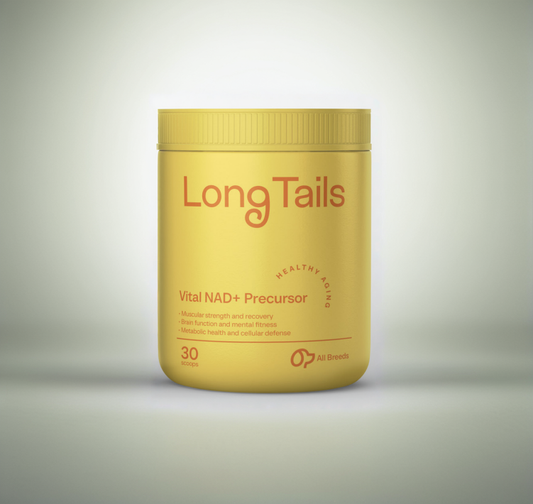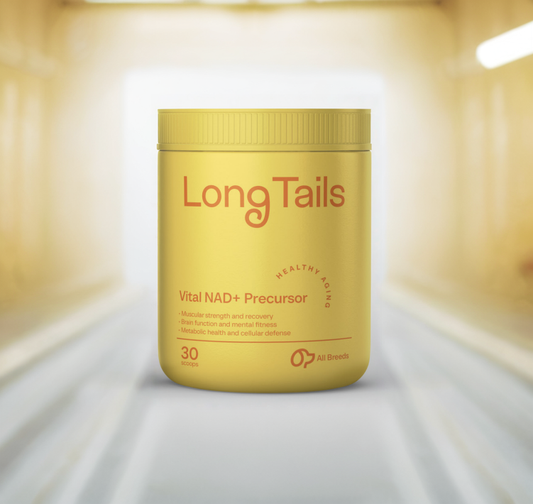Can Supplements Help Manage Arthritis Pain in Dogs? Here's What the Science Says

Can Supplements Help Manage Arthritis Pain in Dogs? Here's What the Science Says
As our beloved dogs age, many of them will face the challenges of arthritis – a painful and debilitating condition that affects the joints. While conventional treatments like non-steroidal anti-inflammatory drugs (NSAIDs) can help manage symptoms, many pet owners are interested in exploring natural supplements as complementary therapies. But with so many options on the market, it can be hard to know what really works. Let's take a closer look at what the research says about some popular supplements for canine arthritis.
Fish Oil Omega-3 Fatty Acids: Promising Support for Joint Health
One of the most well-studied supplements for canine arthritis is fish oil, which is rich in anti-inflammatory omega-3 fatty acids. Several randomized controlled trials have found that dietary supplementation with fish oil can significantly improve weight bearing and reduce lameness in dogs with osteoarthritis.1,2
One study even suggested that feeding a diet supplemented with fish oil may allow for a reduction in the dosage of NSAIDs like carprofen.3 This is promising news, as it could potentially reduce the risk of side effects associated with long-term NSAID use.
The anti-inflammatory effects of fish oil are thought to be due to the omega-3 fatty acids EPA and DHA. Research shows that increasing the amount of EPA and DHA in the diet leads to dose-dependent increases in their levels in the blood, correlating with improvements in arthritic symptoms.2
Green-Lipped Mussel: A Natural Source of Joint-Supportive Nutrients
Another popular supplement for canine arthritis is green-lipped mussel (GLM), a shellfish native to New Zealand. GLM contains a variety of nutrients that may support joint health, including omega-3 fatty acids, chondroitin sulfate, and glucosamine.
A series of clinical studies found that a GLM-supplemented diet helped alleviate arthritic signs in dogs, improving mobility and reducing pain.4,5 While the exact mechanisms are not fully understood, the anti-inflammatory compounds in GLM are thought to play a key role.
Importantly, the processing of GLM matters – heat treatment can destroy its beneficial effects. Look for cold-processed or freeze-dried GLM supplements to ensure maximum potency.
Herbal Formulas: Potential for Multi-Modal Support
Some studies have explored the effects of multi-ingredient supplements that combine various herbs and nutrients. One randomized, placebo-controlled trial tested a supplement containing Boswellia serrata, green tea extract, glucosamine, chondroitin sulfate, and other ingredients in dogs with osteoarthritis.
The results were promising – dogs receiving the supplement showed significant reductions in pain and improvements in mobility compared to the placebo group.6 The various active compounds likely work synergistically to modulate inflammation and support joint health.
Another study found that a nutritional supplement improved clinical signs and metabolic parameters in arthritic dogs over a 90-day period, with no adverse effects reported.7 This highlights the potential for well-formulated supplements to provide safe, multi-modal support.
Eggshell Membrane: An Emerging Option for Joint Health
A newer player in the world of canine arthritis supplements is eggshell membrane. Rich in collagen, hyaluronic acid, and other nutrients, eggshell membrane has shown anti-inflammatory and chondroprotective effects in laboratory studies.
A pilot clinical trial found that dogs with osteoarthritis receiving an eggshell membrane supplement had reductions in the inflammatory marker IL-2 and improvements in owner-assessed mobility scores.8 While the effects were modest, they warrant further investigation in larger, placebo-controlled studies.
The Bottom Line: Supplements as Part of a Holistic Approach
While the research on supplements for canine arthritis is encouraging, it's important to remember that they are not a replacement for veterinary care. Arthritis is a complex condition that often requires a multi-modal approach, including weight management, exercise moderation, and medications when needed.
That said, supplements can be a valuable addition to an arthritis management plan for many dogs. The key is to choose high-quality products and to work closely with your veterinarian to find the right combination for your individual dog's needs.
As always, preventing joint issues is easier than treating them. Feeding a balanced diet, maintaining a healthy weight, and providing regular, moderate exercise from puppyhood through the senior years can go a long way in supporting your dog's joint health.
With a proactive, holistic approach that includes science-backed supplements, we can help our beloved companions stay comfortable and active well into their golden years.
References:
-
Roush, J. K., Cross, A. R., Renberg, W. C., Dodd, C. E., Sixby, K. A., Fritsch, D. A., ... & Hahn, K. A. (2010). Evaluation of the effects of dietary supplementation with fish oil omega-3 fatty acids on weight bearing in dogs with osteoarthritis. Journal of the American Veterinary Medical Association, 236(1), 67-73. https://doi.org/10.2460/javma.236.1.67
-
Fritsch, D. A., Allen, T. A., Dodd, C. E., Jewell, D. E., Sixby, K. A., Leventhal, P. S., ... & Hahn, K. A. (2010). Dose-titration effects of fish oil in osteoarthritic dogs. Journal of Veterinary Internal Medicine, 24(5), 1020-1026. https://doi.org/10.1111/j.1939-1676.2010.0572.x
-
Fritsch, D. A., Allen, T. A., Dodd, C. E., Jewell, D. E., Sixby, K. A., Leventhal, P. S., ... & Hahn, K. A. (2010). A multicenter study of the effect of dietary supplementation with fish oil omega-3 fatty acids on carprofen dosage in dogs with osteoarthritis. Journal of the American Veterinary Medical Association, 236(5), 535-539. https://doi.org/10.2460/javma.236.5.535
-
Bierer, T. L., & Bui, L. M. (2002). Improvement of arthritic signs in dogs fed green-lipped mussel (Perna canaliculus). Journal of Nutrition, 132(6), 1634S-1636S. https://doi.org/10.1093/jn/132.6.1634S
-
Servet, E., Biourge, V., & Marniquet, P. (2006). Dietary intervention can improve clinical signs in osteoarthritic dogs. Journal of Nutrition, 136(7), 1995S-1997S. https://doi.org/10.1093/jn/136.7.1995S
-
Martello, E., Bigliati, M., Adami, R., Biasibetti, E., Bisanzio, D., Meineri, G., ... & Bruni, N. (2022). Efficacy of a dietary supplement in dogs with osteoarthritis: A randomized placebo-controlled, double-blind clinical trial. PloS one, 17(2), e0263971. https://doi.org/10.1371/journal.pone.0263971
-
Musco, N., Vassalotti, G., Mastellone, V., Cortese, L., Della Rocca, G., Molinari, M. L., ... & Lombardi, P. (2019). Effects of a nutritional supplement in dogs affected by osteoarthritis. Veterinary Medicine and Science, 5(3), 325-335. https://doi.org/10.1002/vms3.182
-
Muller, C., Enomoto, M., Buono, A., Steiner, J. M., & Lascelles, B. D. X. (2019). Placebo-controlled pilot study of the effects of an eggshell membrane-based supplement on mobility and serum biomarkers in dogs with osteoarthritis. Veterinary Journal, 253, 105379. https://doi.org/10.1016/j.tvjl.2019.105379
This article is for informational purposes only. It is not, nor is it intended to be, a substitute for professional medical or veterinary advice, diagnosis, or treatment and should never be relied upon or perceived as specific medical or veterinary advice.
We recognize there may be different points of view or opinions on some aspect or even the premise of this article. Our goal at LongTails is to provide the best, clearest, and most helpful information possible to help keep your dog happy, healthy and safe.



